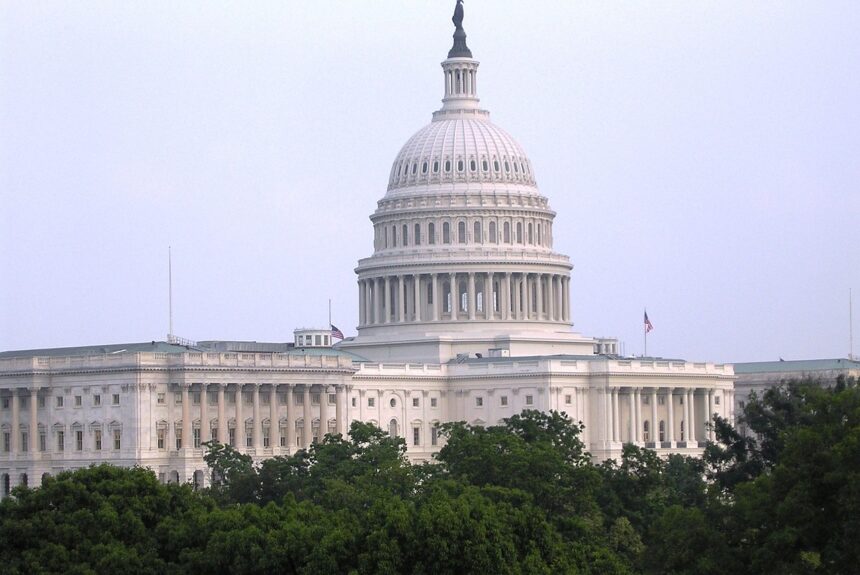Permitting talks in Congress stalled last weekend as lead negotiators could not agree on a final compromise. Republican control of the presidency and Congress, albeit with slim majorities, provides an opportunity for a fresh look at permitting reform next year. It’ll be a fresh start with a shifted Overton window, but the 119th Congress should continue to prioritize permitting reform with the following principles in mind.
Go bold and be comprehensive
In 2022, Jeremiah Johnson, the co-founder of the Center for New Liberalism, advocated abolishing the National Environmental Policy Act (NEPA). Heritage Foundation research fellow Diane Katz made a similar case four years earlier. Weaponized as a tool that holds back economic development and environmental progress, there is a legitimate argument that NEPA could go away, and we’d maintain the necessary safeguards to protect the environment. We have stringent environmental regulations in place. Companies that cause environmental harm against the law are liable for that damage. As president and chief policy officer at CGCN Mike Catanzaro writes, we need to shift to a permit-by-rule than mother may I approach.
Congress is unlikely to repeal NEPA, but the starting point should not be tinkering around the edges. NEPA causes regulatory paralysis and allows litigious organizations to block projects even if the environmental assessment deems them safe. Permitting challenges are likely to persist without fixing the problem of excessive litigation. Furthermore, NEPA is far from the only problem. Congress needs to modernize all of the major environmental statutes, such as the Clean Water Act, Clean Air Act, and Endangered Species Act.
Transmission policy should also be part of the conversation. Transmission bottlenecks exist, and relieving those bottlenecks through some combination of upgrading existing infrastructure and building out new lines can help lower costs, improve grid reliability, and reduce emissions. Well-defined benefits centered around improving affordability and reliability while restricting cost socialization among other consumers are necessary conditions for reform. If Congress constrains the fiscal costs of the Inflation Reduction Act by more rapidly phasing out tax credits for mature technologies, it should open wider doors for meaningful transmission reform.
Remain energy and technology-neutral but address technology-specific problems
Energy markets are far from free and competitive. Energy consumers and taxpayers will benefit from freer and more competitive markets. Energy policy has muddled markets as Congress and past administrations have enacted policies for the energy sources they do like and erected barriers for those they don’t like. The result has been a mix of subsidies, mandates, and regulatory ping-pong that occurs every four or eight years. Permitting reform that moves properly through the legislative process should change that.
A large portion of federal reforms help all energy development and technologies. Fixing excessive litigation, for instance, will help critical minerals solar arrays, pipelines, transmission, and any other project subject to litigation. Congress should also address the regulatory and policy barriers that adversely affect the competitiveness of specific energy technologies. That includes everything from relicensing hydropower, radiation standards for nuclear, and ensuring geothermal production on federal land is on equal footing with oil and gas development. Permitting for freight rail should be consistent with interstate highways. Let American companies export liquefied natural gas, which provides economic, geopolitical, and environmental benefits.
Broader permitting reform will address some of these problems, but Congress should not ignore the laundry list of techno-specific challenges that stifle investment, increased supplies, and cleaner options.
An opportunity for the new Congress
America is a global leader in energy production and innovation despite the massive regulatory obstacles that stand in its way. Every day, I read about exciting, promising new energy technologies that could provide affordable, dependable power at competitive prices. Some of those technologies could be transformational, while others will fail. However, they should not fail because antiquated government policies inflate costs and delay project development.
Permitting reform must remain a priority if the U.S. wants to maintain its economic competitiveness, energy dominance, and environmental advantage.
The views and opinions expressed are those of the author’s and do not necessarily reflect the official policy or position of C3.
